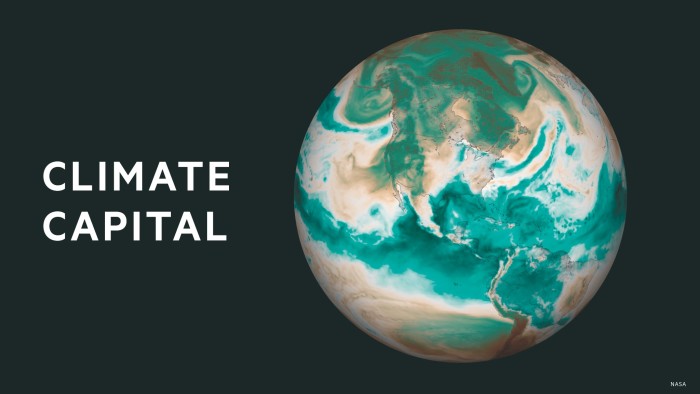ESG ETF growth accelerates in Asia

Simply sign up to the Exchange traded funds myFT Digest -- delivered directly to your inbox.
Interested in ETFs?
Visit our ETF Hub for investor news and education, market updates and analysis and easy-to-use tools to help you select the right ETFs.
Exchange traded funds focused on environmental, social and governance themes have garnered only about 4 per cent of total Asia Pacific ETF assets, but their market share is growing fast.
Twenty-five ESG ETFs debuted in Asia Pacific in 2020, while 31 more listed in the first six months of last year, Cerulli Associates noted in a report.
The products attracted about $2bn in inflows both 2020 and 2019 against just $159.8m in 2016. Net flows in the first half of 2021 had already amounted to $1.7bn.
“Managers in key markets in the region are launching more ESG-themed ETFs to provide cost-efficient access to responsible investing products and to differentiate themselves amid stiff competition,” Cerulli noted in the report.

This article was previously published by Ignites Asia, a title owned by the FT Group.
“When asked about their reasons for choosing ESG ETFs over ESG mutual funds, asset managers told Cerulli ETFs are easier to implement given managers’ ESG capabilities, while others said ETFs provided more flexible, liquid and lower-cost investment options.”
Total ESG ETF assets under management in the countries covered by the Cerulli research — Australia, China, Taiwan, Japan, Korea, Hong Kong, Indonesia, Malaysia, India and Singapore — grew from $308.7m in 2016 to $12.8bn as of June 2021.
Australia, China and Taiwan were the dominant regional players with 86.8 per cent of total ESG ETF assets in Asia Pacific in 2020.
ESG ETF growth has been particularly strong in Australia which saw assets in the sustainable funds jump from $156.2m in January 2016 to $4.9bn in June 2021.
The research found that Generation Z was the most concerned about ethical investing, with 55 per cent likely to invest in a fund that integrates ESG considerations.
China also saw strong growth, with assets jumping from $15m in 2016 to $3.3bn as of June 2021. There were a number of launches in 2021 following President Xi Jinping’s commitment in September 2020 to achieve carbon neutrality in the country by 2060.
“While there were only four new ESG ETFs in 2020 in China, 11 were launched in the first half of 2021, with more than half of them incorporating low-carbon or new-energy themes,” Cerulli noted.
Taiwan saw assets in ESG ETFs ramp up from $101.4m in 2018 to $1.2bn in 2019 and $1.7bn in 2020. It had $2.6bn in ESG ETF assets as of June 2021.
Early last year, domestic fund firms in Taiwan were rushing to roll out new ETFs that carry an ESG label, plugging into the continued appetite for the low-cost passive vehicles and rising popularity of sustainable investing.
Climate Capital

Where climate change meets business, markets and politics. Explore the FT’s coverage here.
Are you curious about the FT’s environmental sustainability commitments? Find out more about our science-based targets here
“The [Taiwan] ESG ETF market boom in the first half of the year could be attributed not just to demand factors but also to fund houses scurrying to push out their ESG strategies before new regulations were introduced in July 2021,” the Cerulli report noted.
Last July, Taiwan’s Financial Supervisory Commission laid out stricter criteria and disclosure requirements for ESG-labelled funds, requiring managers to set at least one ESG goal and allocate more assets to meet these objectives.
The Cerulli researchers noted that there had been growing use of robo-advisers across Asia over the past 10 years.
“In Singapore, for example, robo-advisers are offering thematic investing, including ESG-themed funds, in addition to traditional goal-based investing,” Cerulli noted.
Cerulli associate analyst Ng Hao Qin said that “the pace of ESG ETF launches in the Asia Pacific is expected to persist, as investors seek cheaper alternatives to invest sustainably”.
“Although there are concerns that such funds may not be sufficient for implementing a sustainable investing strategy, some of them have proven to have well-documented ESG processes or practices, while retaining their advantages of providing transparency, liquidity and flexibility for investors,” he added.
*Ignites Asia is a news service published by FT Specialist for professionals working in the asset management industry. It covers everything from new product launches to regulations and industry trends. Trials and subscriptions are available at ignitesasia.com.

Click here to visit the ETF Hub

Comments